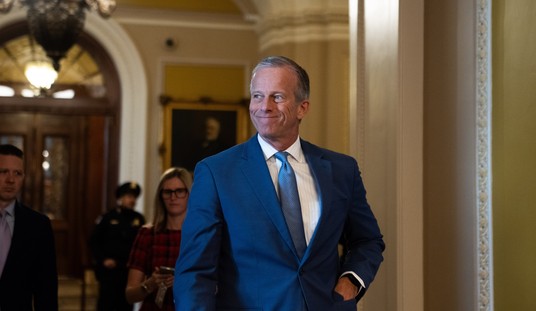Justice Stevens’ retirement from the Supreme Court creates a potential game-changer for the midterm elections. If Republicans respond correctly to this, they can recapture the House, make big gains in the Senate, and bring most of the Tea Party crowd back into the GOP fold.
On April 9, Justice John Paul Stevens announced that he will retire from the Supreme Court this summer. This move has been anticipated since late 2009, when Stevens didn’t hire his full allotment of law clerks for the Court’s next term. But making the announcement now completely changes the national dialogue, with widespread implications.
Many justices announce their retirement from the Supreme Court around the last day of the Court’s term. (Supreme Court terms begin on the first Monday of October, and end in the last week or so of June.) Many legal analysts (including me) expected Justice Stevens’ announcement in late June.
By announcing in April his intent to retire, Justice Stevens has completely changed the White House’s prospects for the year. The president was shifting focus to taking over the banking industry, then was going to move on several other liberal priorities, including granting amnesty to 12 million illegal immigrants.

Justice Stevens changed that with his announcement. The Supreme Court is a coequal branch of government, every bit as powerful as the president or Congress. Given that the Court only has nine justices, changing one of them is a major shift in national power.
This is highlighted by the big issues the Court is deciding this term. The Court has already decided a major free-speech case in Citizens United, and we will shortly receive the Court’s decisions in the Mojave cross case, whether the feds can permanently detain “dangerous” people who have completed their prison time, whether they can convict people for not providing “honest services” (a dangerously vague term), whether state universities can expel Christian clubs for requiring club officers to adhere to the group’s beliefs, and whether people can sign petitions to protect traditional marriage without their addresses being posted on the Internet to intimidate them.
Recommended
Of all these issues, none is bigger than gun rights. This June the Court will decide McDonald v. Chicago, asking whether the Second Amendment extends the right to keep and bear arms against state and local gun-control laws. That case—in which the National Rifle Association is a party—will come down right before Justice Stevens retires.
One thing that is absolutely essential is that Republicans cannot allow a final floor vote on this nomination until September, nor should they do so. These cases demonstrate how vitally-important the Supreme Court is, and every American should be deeply engaged and speak out about what kind of jurist this country needs.
Of all the possible reactions, the one trap that Republicans must avoid is to take a pass on this fight (as many moderates will argue) by concluding that any of the replacements on Obama’s short list will simply mean replacing one liberal justice with another.
First of all, that’s the wrong way to think of the issue. This is about replacing an 89-year old with someone in their fifties, who will shape the meaning of the U.S. Constitution for decades. Federal judges hold lifetime appointments, and this appointee will be one of President Obama’s longest-lasting legacies.
Second, this issue is a winning issue for conservatives. This is not a 50-50 issue. Independents largely join conservatives in supporting judicial restraint: that judges should interpret the Constitution as it is written, not according to what that judge thinks is right. Liberals support activist judges, who declare the Constitution to mean whatever they want it to mean, according to their own liberal concepts of how society should operate.
The GOP’s decision about how to respond to Justice Stevens’ retirement will be profoundly important. It could even shape the remainder of Obama’s presidency.
President Obama’s short list includes Solicitor General Elena Kagan, Judge Diane Wood, Judge Merrick Garland, and Governor Jennifer Granholm, who are all on the left. He’s is going to nominate a staunchly-liberal nominee, and to the extent that Senate Republicans can force a long, open conversation with the American people through a full-length confirmation process that doesn’t allow for a floor vote before the August recess, this nomination will suck all the oxygen out of the room for Obama’s other election-year priorities.
This will put the brakes on President Obama’s far-left agenda regarding banks, cap and trade, card check, and amnesty, and it will force every Senate candidate (and some House candidates) to weigh in on what sort of judges this country needs. It will also help keep Tea Party folks—many of whom are as fed up with the Republicans as they are with the Democrats—into the GOP fold, as Republicans prove that they are regard the Supreme Court as a top priority for America’s future.
The tenor of the 2010 elections may turn on how Republican leaders and candidates choose to respond to Justice Stevens stepping down from the Supreme Court. Conservatives need to make clear to moderates within the party that this is no time to abandon conservative principles. The Supreme Court is as important as it gets.























Join the conversation as a VIP Member